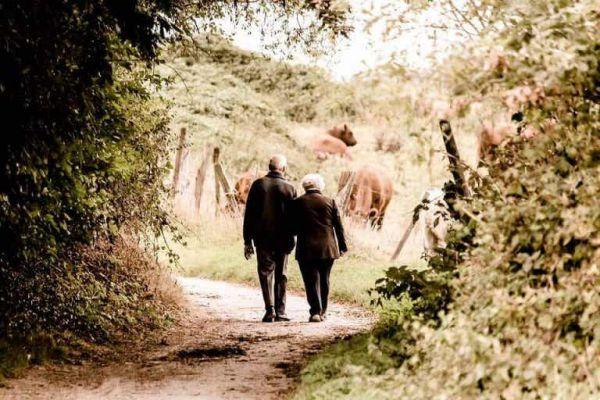
Last update: February 17, 2018
There are stories that deserve to be shared. Many are passed down from generation to generation. Word of mouth is for this, to share memories and interpretations of past events. The transmission of these stories constitutes the "collective memory". Several generations share the memories so that they are not lost.
But what are the stories? Stories are simply representations of the past that are collected into narratives. These stories, which are about a certain topic, have a plot with a well-defined beginning and end, provide sequential and causal coherence. Furthermore, the events considered most important appear in the narrative. When a narrative is adopted by a group as an interpretation of the past, it becomes part of their collective memory.
Distortions in collective memory
Collective memory is an objective or neutral account of past events. These shared narratives are selective, remember what you want to remember, and are biased, as in many cases priority is given to what is useful in the present.
Collective memory can serve to justify the actions of the present. On the basis of the oral transmission of collective memory, each generation that shares it increasingly distorts the initial history, adapting it to the needs of the present.
When grandparents tell us about past wars, the events they remember most and which have left a deeper mark, these events will be reported according to their ideology.
They will probably choose the side of the victim, and they will tell us about the oppressors, the guilty ones. The "little battles of grandparents" will serve to explain why specific behaviors are implemented in the contemporary moment. "If we fought for a united Spain ... we did not do it so that now Padania becomes independent".
Types of collective memory
Although so far we have talked about the transmission of stories orally, there are different forms of transmission. These correspond to the different types of memory that make up collective memory and which are:
- Popular memory: representations of the past by members of society and which manifest themselves directly in public opinion polls.
- The official memory: are the representations of the past adopted by formal institutions. This memory is manifested, for example, in military publications, national museum exhibits, and textbooks approved for use in the education system.
- The autobiographical memory: of people who have directly experienced events related to history, generally demonstrated through memories and oral histories. This memory is a primary source of knowledge of the past.
- Historical memory: the way in which the scientific community explains the past with its studies.
- To the cultural memory: how society views its past through various elements including newspaper articles, commemorations, memorials, films and buildings.
The last four types of memory are the ones that most affect popular memory; while official memory, which represents nations internationally, affects foreign relations.
The collective memory of conflicts
When discussing a conflict, the narratives address the main events that triggered the conflict and that developed during its unfolding. These stories will be selective and biased. They will provide a selfish and simplistic view of the conflict.
Usually these narratives touch on at least four main themes:
- Delegitimation of the rival.
- The positive image of one's own group.
- The presentation of one's group as the only or main victim.
- The justification for the start of the conflict.
Such tales play two important roles in the conflict. The first is internal. When a group adopts these stories, they become part of the popular memory of its members. The narratives, therefore, influence the psychological reactions of the members of the group and consequently their actions.
Most likely they will be negative towards the opponent and positive towards the group itself. The second role is external, the stories present their group in a positive way in front of the international community, from which support is sought.
Consequences of collective memory
The narratives that make up the collective memory of a conflict often inhibit peaceful conflict resolution and reconciliation between the parties. On the one hand, the members of the group are unmotivated to make peace with a rival that they perceive in a negative way and as not very trustworthy. On the other hand, distorted narratives dissuade the opponent from negotiating with the other group.
As Epictetus said: "God has given us two ears, but only one mouth, precisely to hear twice and speak half".
The collective memory in most cases is selfish and biased, therefore we have to consider all perspectives. Knowing all the narratives, including those that are at odds with collective memory, will help us better understand past events. It will also help us understand what the role of narrative is and what elements limit or prevent peace agreements.


























